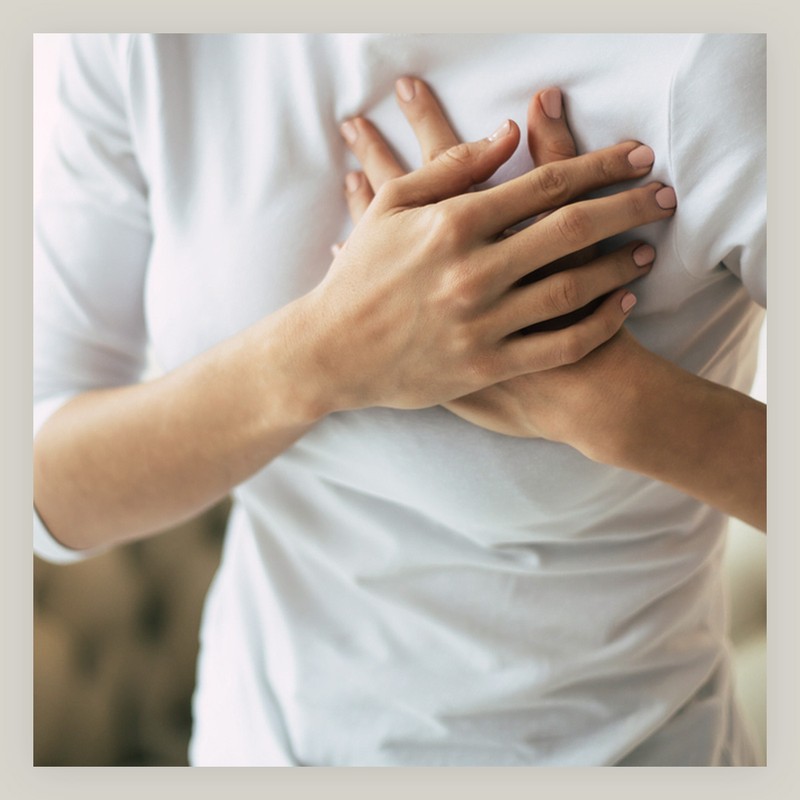
How To Look After Your Heart
The Figures Have Changed
“In the UK, over 3.5 million women live with heart or circulatory disease. Sadly, heart disease is also the biggest cause of death across women in the UK, with around 28,000 dying from heart attacks each year. Since the 1960s, the rate of survival from heart attacks has increased significantly, thanks to awareness and improvement in treatment. Back in the 60s, seven out of ten heart attacks in the UK were fatal, whereas today at least seven out of every ten people survive them.” – Dr Arun Thiyagarajan, medical director for Bupa Health Clinics
Age Plays A Part
“Heart attacks are often thought of as something that only affect men, but it’s important to remember heart disease can affect anybody, while some contributing factors aren’t within our control, such as age. The menopause, for example, causes the amount of oestrogen in a woman’s body to fall, which leaves many body parts – including the heart – more vulnerable. Oestrogen protects arteries and, without it, fatty plaque deposits are likely to build up, leaving women at an increased risk of developing heart and circulatory diseases, as well as higher cholesterol. Additionally, the menopause can cause palpitations – where your heart beats faster than usual. This is due to the change in a woman’s hormone levels throughout menopause, which can be triggered by hot flushes. It’s worth noting that these are usually harmless, but if you’re concerned about them, make sure to book an appointment to see your GP.” – Dr Thiyagarajan
There Are Signs To Look Out For
“Your heart has its own natural ‘pacemaker’ in the form of electrical signals which tell it when to beat and how to maintain its rhythm. If the rhythm is thrown off, it could indicate you have arrythmia. This can happen in people of all ages, but it's more common as we get older. One of the main signs of arrythmia is feeling like your heart has skipped or missed a beat – this is called an ectopic beat. Ectopic beats are very common and generally harmless. However, if this happens frequently over a couple of weeks or more or is associated with other symptoms such as dizziness or fainting, seek medical advice. Often, simple lifestyle changes such as reducing caffeine and alcohol or getting more sleep will improve the symptoms. Palpitations, which feel like your heart is fluttering, is also a sign of arrythmia – many people will experience palpitations at some point in their life, but you shouldn’t experience them regularly. A sustained irregular heartbeat may also be due to a condition called atrial fibrillation. This is more common as we get older and is important as it can potentially cause strokes. Simply arranging a pulse check with your GP or pharmacist can screen for this condition.” – Dr Syed Ahsan, consultant cardiologist at The Wellington Hospital, part of HCA UK
The Symptoms Go Beyond Chest Pain
“If you’re constantly tired, this could also be a sign that your heart is struggling to pump efficiently, which can lead to heart failure. Unexplained shoulder, arm, back, jaw or abdomen pain can also be a sign your heart is working harder due to a blocked blood supply – take note, especially if the pain occurs during exercise and alleviates during rest. Also keep an eye out for swelling across your legs, ankles and feet – if you find swelling and pressing your finger into it leaves an indentation, this could be a sign of heart failure.” – Dr Thiyagarajan
A Woman’s Heart Is Different To A Man’s
“Women’s hearts tend to be physically smaller than men’s, meaning that some of the interior chambers are smaller, and the walls which divide them are thinner. Additionally, a woman’s heart pumps faster than a man’s, but dispels around 10% less blood with each pump compared to a man’s heart. There are differences within how men’s and women’s hearts respond to stress, too. Women see an increase in pulse rate and their hearts pump more blood – conversely, men’s arteries constrict, reducing the blood flow and increasing the blood’s pressure. Men are more likely to develop heart disease, and they’re twice as likely to have a heart attack than women, and at a younger age, but that doesn’t mean women are immune to heart conditions.” – Dr Thiyagarajan
Symptoms Of A Female Heart Attack Can Also Differ
“It’s important to remember heart attack symptoms vary between individuals and it’s not always obvious when you’re having one. The most common symptom, in both men and women, is dull, heavy chest pain. However, women are more likely to also have an indigestion-like discomfort in their abdomen, feel breathless, light-headed, sweaty, or sick during a heart attack. These lesser-known symptoms of a heart attack mean that, often, calls for emergency medical help aren’t made until much later. If you experience any combination of symptoms that could be due to a heart attack, don’t wait. It’s vital to call 999 – heart attack survival rates are much higher with the help of early medical support.” - Dr Thiyagarajan
Recovery Can Take Months
“Many people often make a full recovery after a heart attack. However, you may not be able to do everything you had previously done and it’s important to remember recovery is a gradual process and can take several months. How well you recover after a heart attack will depend on many things, including the severity of the attack and the treatment you receive. Your age and any existing underlying conditions can also have an impact. A heart attack is also a particularly frightening experience, so it’s important to recover both emotionally and physically. It’s important to feel completely better, both in body and mind, before heading back to work, for example. Your doctors will support you at every stage of your recovery and will recommend medication if necessary.” – Dr Thiyagarajan
A Heart Attack Isn’t The Only Risk
“Cases of takotsubo cardiomyopathy – also known as ‘broken heart syndrome’ – are reportedly on the rise. The condition occurs when muscles in the heart suddenly become weakened; takotsubo is the word for a Japanese octopus trap, which is a similar shape to a heart with this condition. When you have this condition, the left side of your heart becomes weakened and appears enlarged. It can affect anyone at any age, but typically affects women over the age of 50. Symptoms include chest pain, shortness of breath, nausea, and heart palpitations. More research is needed into the exact causes of takotsubo cardiomyopathy, but it’s often linked to physical, emotional, or psychological stress. We are living in a hugely stressful period in our lives and this may have resulted in people experiencing severe distress.” – Dr Thiyagarajan
Lifestyle Changes Do Make A Difference
“It’s never too late to start looking after your heart. By making simple changes, you can reduce your risk, particularly if you are over the age of 60:
Ditch The Salt: Consuming too much salt can raise blood pressure, increasing your risk of heart disease. As a general guide, you should eat less than six grams of salt per day. Be mindful of the salt that’s in ready-made foods like bread, as this can add up. Familiarise yourself with food labels and the amount of salt in your food. Food packaging often includes a traffic light system – always choose products that are green for their salt portion and use spices instead of salt to flavour your food.

Follow A Heart-Healthy Diet: Eating a well-balanced diet that’s full of fruit and vegetables can help keep your heart in good condition. Always choose lean cuts of meat; swap your usual dairy products for low-sugar and low-fat alternatives (or try soy varieties); and choose wholemeal and wholegrain options when it comes to bread and pasta. Watch your intake of processed foods, too, including cakes, biscuits and takeaways, which all contain trans fats. Eating too many trans fats is often linked to an increased risk of heart disease.
Keep Stress At Bay: If you’re stressed, you may be more likely to turn to unhealthy habits, like smoking, alcohol, or eating unhealthily. While it’s not yet clear if stress alone affects your heart health, the unhealthy habits it can lead to will. After a challenging year, it’s more important than ever to find ways to manage everyday stresses. Practising mindfulness, catching up with loved ones and regular exercise can all keep stress at bay.
Cut Back On Alcohol: Drinking not only raises blood pressure but it can increase your weight, too. Be sensible with your alcohol consumption and aim for no more than 14 units per week, ideally spread across seven days with drink-free days, too.
Make Time To Exercise: Regular exercise that raises your heart rate can do wonders for your heart health. It helps reduce the risk of high blood pressure, strokes and heart attacks. Aim to do something active each day and build up to a total of 150 minutes of moderate intensity aerobic activity (such as a brisk walk, dancing or cycling) each week. If you have an existing heart condition, you should speak to your doctor before you exercise.” – Dr Thiyagarajan
For more information visit Bupa.co.uk and HCAHealthcare.co.uk
DISCLAIMER: Features published by SheerLuxe are not intended to treat, diagnose, cure or prevent any disease. Always seek the advice of your GP or another qualified healthcare provider for any questions you have regarding a medical condition, and before undertaking any diet, exercise or other health-related programme.
DISCLAIMER: We endeavour to always credit the correct original source of every image we use. If you think a credit may be incorrect, please contact us at info@sheerluxe.com.

